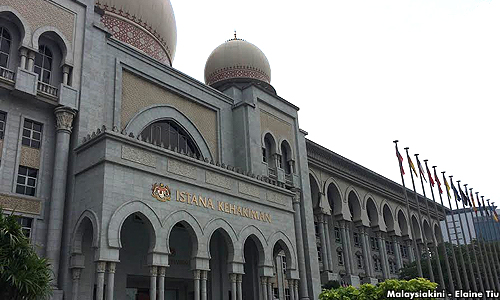Free speech faces a paradox in Malaysia. Despite the guarantees contained in Article 10 of the Federal Constitution, freedom of speech and expression has often been curbed by law.
The authorities' recent track record in restricting free speech can be seen in cases including the investigation of the former attorney-general's publication of his memoir, criminalising an online publisher for contempt of court and criticisms during the Covid-19 pandemic.
In a democracy with diverse viewpoints and lively public debate, simply taking offence at contrarian or dissenting opinions should not be the basis for prosecutions or lawsuits aiming to silence speech.
With Malaysia's new government, the nation has an opportunity to revitalise its free speech values. If this government keeps its word, it won’t be reluctant to protect free speech and expression.
There remains much criminal legislation, such as the Sedition Act 1948 and the offence of criminal defamation under the Penal Code, that may have a chilling effect on speech and expression.
Such laws, whether inherited from colonial predecessors or more current ones dealing with online speech, suppress the plurality of views found online and in traditional media outlets.
The controversial Anti-Fake News Act 2018, aimed at stifling dissent, was repealed in 2019. The Emergency (Essential Powers) (No 2) Ordinance Bill came into force in March 2021. Its stated target was misinformation about Covid-19 and emergency lockdown orders.
With the emergence of social media, Malaysians have witnessed an increase in prosecutions under the Communications and Multimedia Act 1998.
The use of this act has been cited as an infringement of freedom of speech and expression. Its use in prosecuting free speech in mainstream media, social media and direct messaging platforms has led advocates and civil society organisations to call for its reform.
The undermining of constitutional provisions by this legislation was made clear at the height of the 1MDB scandal, when newspaper publications faced suspension and online publications’ websites were blocked over stories covering the corruption charges brought against former prime minister Najib Razak.
Finding a balance
While authorities argue that these laws counter harmful speech, the lack of clear standards and justifications is problematic.
The courts have viewed legislation restricting Article 10 as constitutional on the grounds that there is minimal jurisdiction to review the constitutionality of the legislation. The omission of the word “reasonable” in Clause 2 of Article 10, permitting legislative restrictions to free speech and expression, is one basis for the courts' position.

Where prosecution for harmful and offensive speech is merited, the courts are entrusted with balancing the interests of individual liberty and social order.
Decisions on that balance must be fair, reasonable and proportionate, taking a multi-dimensional and rights-expansive approach.
There is room for Malaysian courts to be more dynamic in protecting free speech and expression, particularly where freedom of speech and expression can act as a check on government bodies and elected officials.
International norms (such as Article 19 of the International Covenant on Civil and Political Rights) protect the right to hold opinions without interference and the right to freedom of expression, but they allow for restrictions on the condition they are imposed by law and necessary for “respect of the rights or reputations of others” or for “protection of national security or of public order, or of public health or morals”.
Need for guidelines
When considering the encroachment on such rights, Malaysian courts weigh the government's concern about protecting a particular interest, such as national security or individual reputation, against the speaker’s interests or the collective benefit to society.
To ensure that prosecutions are justified, prosecutors could establish clear guidelines for charging, similar to international models. For instance, the UK guidance on social media prosecutions focuses on public interest and proportionality.
The public interest requirement spells out the need for the prosecution to be necessary and proportionate, mainly when engaging with Article 10 of the European Convention of Human Rights – a provision similar in spirit to Malaysia’s Article 10.
The guidance provides a list of factors for prosecutors to consider in determining evidence that sufficiently merits a charge and is seen as justifiable to restrict freedom of speech and expression.
Last month, Law and Institutional Reform Minister Azalina Othman Said revealed that revisions to the Sedition Act 1948 should be limited to only matters involving the royalty, mainly "to protect the institution of rulers from any provocation".
She added that provocations involving religion and race would be scrutinised, including the possibility of enacting new laws.
Introducing new laws can often be a gesture to appease calls to review and repeal laws that hinder free speech, such as the Sedition Act.
There have been calls in recent months to make good on the promises of previous administrations to repeal the act. - Mkini
JASPAL KAUR is a senior lecturer in law at Canterbury Christ Church University, UK. She specialises in the intersection of technology law with a focus on freedom of expression, and AI law and ethics.
Originally published under Creative Commons by 360info™.
The views expressed here are those of the author/contributor and do not necessarily represent the views of MMKtT.

No comments:
Post a Comment
Note: Only a member of this blog may post a comment.